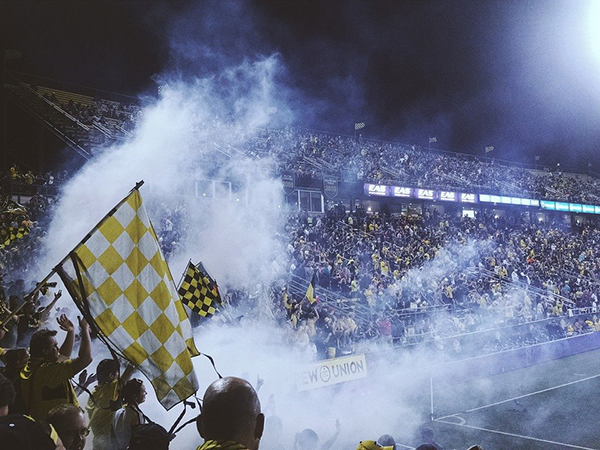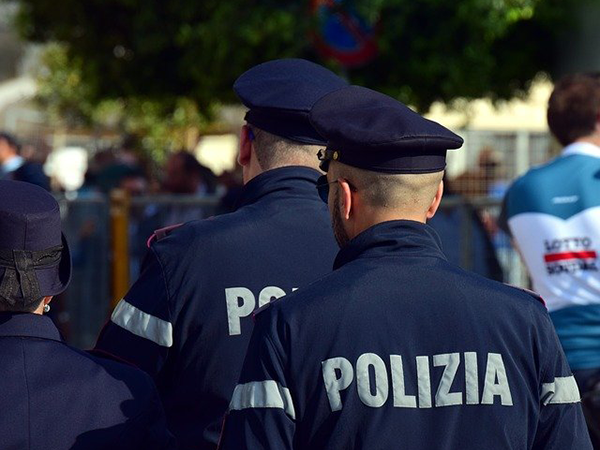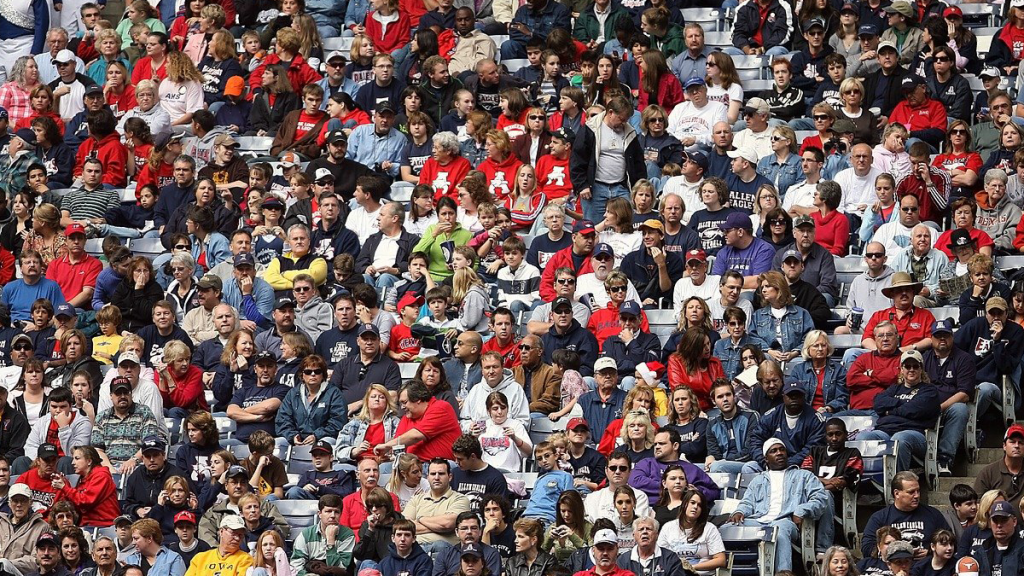As fans have returned to venues across the U.S., there have been several incidents between fans and players or players’ families. Some incidents have seen violence between fans, as well. How are these issues being addressed, and what is potentially causing them?
Player-Fan Incidents
A Boston Celtics fan threw a water bottle that nearly hit the Brooklyn Nets’ Kyrie Irving, the first in a series of high-profile NBA fan incidents.
Officials at TD Garden, the Celtics’ arena, said in a statement that the fan was arrested and will be banned from the building.
A Philadelphia 76ers fan dumped popcorn on the Washington Wizards’ Russell Westbrook.
In a statement, the 76ers apologized to Westbrook and the Wizards. They also announced that they have revoked the fan’s season tickets and banned him indefinitely.
In New York, a Knicks fan spit on Trae Young of the Atlanta Hawks. The Knicks announced that they have banned the fan, who was not a season ticket holder, indefinitely.
The Utah Jazz also had to ban fans over disruptive behavior. In a statement, the team announced that it removed and indefinitely banned three fans who provoked a verbal altercation with the family of Memphis Grizzlies player Ja Morant.
Morant’s father said one fan made a lewd remark to his wife (Morant’s mother), while two other fans made derogatory and profane remarks.
Crossing the Line
The senior Morant went on to say, “That’s beyond heckling.”
He also added that some Jazz fans with whom the family was enjoying fun-spirited banter alerted security when things got out of hand.
Just as the Morants know lighthearted back-and-forth can have a healthy place in sports, so, too, does Young. The Hawks star had some fun with Knicks fans in the game after the spitting incident.
After the Westbrook popcorn incident, LeBron James, one of the most influential voices among NBA players, tweeted “#ProtectOurPlayers.”
A day later, Morant posted the same message.
Fan-on-Fan Incidents
Players want to enjoy the spirit of competition free from any concerns for their physical safety, and fans want to do the same.
A high-profile incident occurred at a Phoenix Suns-Los Angeles Clippers game in the NBA’s Western Conference Finals. Suns fans outnumbered Clippers fans greatly and began chanting “Suns in four.” This cheer implied that they were going to sweep the best-of-seven series by winning the first four games. However, a Clippers fan took their words to heart and threw punches at a Suns fan, leading to a melee.
The Suns released a statement asking fans to “keep their cool,” according to the Arizona Republic.
The paper also says that Suns player Devin Booker reached out to the fan who was punched.
Elsewhere, video posted to Twitter shows fans brawling on the front row of a Tampa Bay Lightning-New York Islanders game. This incident did not get as out of hand as the Suns-Clippers fight, but it’s still an unwelcome sight.
In baseball, there have been several significant clashes between fans. KHOU says the Houston Astros banned three fans after a fight between Los Angeles Dodgers fans and Astros backers. The sign-stealing scandal that engulfed the Astros’ 2019 World Series win over the Dodgers likely contributed to the tensions.
That baseball fight seems to be among the worst, but there have been many more – with footage a little too unsavory to post here.

What’s Driving This?
Recently, IIFX hosted a virtual summit on the return of K-12 sports. One of our speakers, school psychologist Debbie Grace said that participants in athletic events can display “misplaced anger” that has built up over the course of long shutdowns.
One would certainly hope adults could display more emotional maturity than school-age children – and that adults and children alike find healthy outlets to cope after this long year-plus. Nonetheless, these fans do seem to have a great deal of “misplaced anger.”
Psychology Today highlights a study of Brazilian soccer fans showing how “identity fusion” affects fandom.
That phenomenon occurs when a fan’s identity becomes “fused” with that of his or her team.
The article notes the intense nature of international soccer fandom, which it says can range from incidents like the ones discussed here to more serious violence and death.
“Someone with strong identity fusion will go to extreme lengths to protect their in-group against external dangers,” the study states.
Yet, is the mere presence of opposing fans an external danger?

Digging Deeper
Arizona State University’s Center for Problem-Oriented Policing (POP) says, “U.S. events tend to experience more spontaneous violence resulting from an overzealous or intoxicated crowd,” while organized violence occurs most often surrounding international soccer matches.
Thus, the view of opposing fans as a danger may be more common in places where fan violence is organized instead of spontaneous. Still, though, a rowdy, intoxicated crowd could come to blows over team pride.
The POP Center says that increased crowding, warmer temperatures, and the significance of the event can impact fan violence. It is the middle of the summer, and stadiums are finally reopening to full or greatly increased capacity, which is a significant event in and of itself.
Event security of course plays a key role in stopping fan violence. The POP center recommends positive, friendly interaction between security and fans. It says limited police presence and interaction and over-policing can make violence more likely, so security must strike a delicate balance.
Additionally, alcohol can be a factor. The POP Center says alcohol itself does not cause fan violence, but it does impair judgement, making individuals more predisposed to violence more likely to act out.
Speaking to Athletic Business, NFL director of stadium security Ray DiNuzio says that getting fans in stadiums earlier by providing more pregame entertainment can potentially decrease binge drinking.
Tamara Madensen, a crowd management expert and criminal justice professor at the University of Nevada-Las Vegas, tells the publication that selling alcohol at college games could have the same effect by limiting binge drinking at tailgates.
Stopping Future Fan Incidents
The article from Arizona State points out that fan violence has been documented since the times of the Greeks and Romans. Thus, it is probably not going away, but spectators and teams alike can work to prevent it.
All of the NBA incidents mentioned here came over the span of less than a week, and each one resulted in steep consequences and loud public outcry. This strong reaction has set a precedent, which can certainly act as a deterrent in the future.
Additionally, the old adage of, “If you see something, say something,” applies.
Just as the Jazz fans who were engaging in good-natured banter with the Morant family alerted security when other fans started hurling lewd remarks, so too can other fans keep an eye or ear out for behavior that crosses the line.
Hopefully, forward-thinking policies, proactive and watchful fans, and teams willing to strongly punish bad behavior can stop these fan incidents.
Starting in August, some of our content will become subscriber-exclusive. This move will help us continue to grow and give our subscribers more insider advice, insights, and networking opportunities. Our newsletter, the IIFXtra, will send you a mix of free and exclusive content as soon as we publish it. Sign up for the IIFXtra below and learn more about subscribing here.
[mailmunch-form id=”1036259″]

